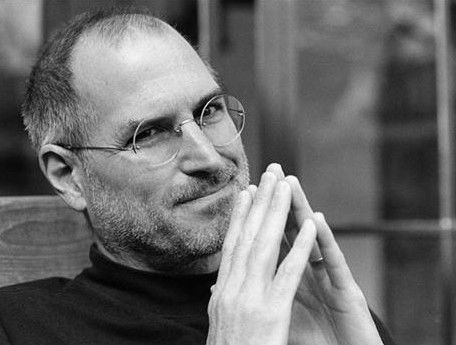(单词翻译:单击)
End-to-end Control
彻底的控制
Jobs's reluctance to make the Mac compatible with the architecture of the Lisa was motivated by more than rivalry or revenge.
乔布斯不愿意让Mac兼容丽萨的架构,并不只是出于竞争或复仇目的。
There was a philosophical component, one that was related to his penchant for control.
还有一个原因,就是他对于控制权的迷恋。
He believed that for a computer to be truly great,
他认为一台电脑要真正做到优秀,
its hardware and its software had to be tightly linked.
它的硬件和软件是必须紧密联系在一起的。
When a computer was open to running software that also worked on other computers,
如果一台电脑要兼容那些在其他电脑上也能运行的软件,
it would end up sacrificing some functionality.
它必定要牺牲一些功能。
The best products, he believed, were "whole widgets" that were designed end-to-end,
他认为最好的产品是“一体的”,是端到端的,
with the software closely tailored to the hardware and vice versa.
软件是为硬件量身定做的,硬件也是为软件度身定制的。
This is what would distinguish the Macintosh,
正因为此,才使得麦金塔有别于微软所创造的环境,
which had an operating system that worked only on its own hardware,
麦金塔上使用的操作系统只能在自己的硬件上运行,
from the environment that Microsoft was creating, in which its operating system could be used on hardware made by many different companies.
而微软和安卓的操作系统可以在许多不同厂家制造的硬件上运行。

"Jobs is a strong-willed, elitist artist
“乔布斯是一个固执的杰出艺术家,
who doesn't want his creations mutated inauspiciously by unworthy programmers," explained ZDNet's editor Dan Farber.
他不希望看到自己创造的东西被二流的程序员给糟蹋了。”ZDNET的编辑丹·法伯写道,
"It would be as if someone off the street added some brush strokes to a Picasso painting or changed the lyrics to a Dylan song."
“这就好像街边的某个人在毕加索的画作上涂了几笔或是改写了鲍勃·迪伦的歌词一样。”
In later years Jobs's whole-widget approach would distinguish the iPhone, iPod, and iPad from their competitors.
到后来,乔布斯软硬件结合的一体化产品理念也让iPhone、iPod和iPad从诸多竞争者中脱颖而出。
It resulted in awesome products.
这一理念造就了伟大的产品,
But it was not always the best strategy for dominating a market.
但这并不总是占领市场的最佳战略。
"From the first Mac to the latest iPhone,
“从最初的最新的iPhone,
Jobs's systems have always been sealed shut to prevent consumers from meddling and modifying them,"
乔布斯的系统一直都是封闭的,用户无法对其进行干预或修改。”
noted Leander Kahney, author of Cult of the Mac.
《Mac信徒》一书的作者利安德·卡尼说。
Jobs's desire to control the user experience had been at the heart of his debate with Wozniak over whether the Apple II would have slots
乔布斯当初和沃兹尼亚克争论是否应该在AppleII上设置扩展槽,
that allow a user to plug expansion cards into a computer's motherboard and thus add some new functionality.
从而允许用户在电脑主板上插入扩展卡来增加一些新功能时,就表现出了他心中那种控制用户体验的强烈欲望。
Wozniak won that argument: The Apple II had eight slots.
沃兹尼亚克在那场争论中获得了胜利。AppleII上有8个扩展槽。
But this time around it would be Jobs's machine, not Wozniak's, and the Macintosh would have limited slots.
但这一次,这台电脑是属于乔布斯的,不是沃兹尼亚克的。麦金塔电脑不会有扩展槽。
You wouldn't even be able to open the case and get to the motherboard.
用户甚至都不能打开机箱碰到主板。
For a hobbyist or hacker, that was uncool.
对于业余爱好者或者黑客来说,这就少了很多乐趣。
But for Jobs, the Macintosh was for the masses.
但对乔布斯来说,麦金塔是为大众设计的。
He wanted to give them a controlled experience.
他想让用户的体验是可控的。


